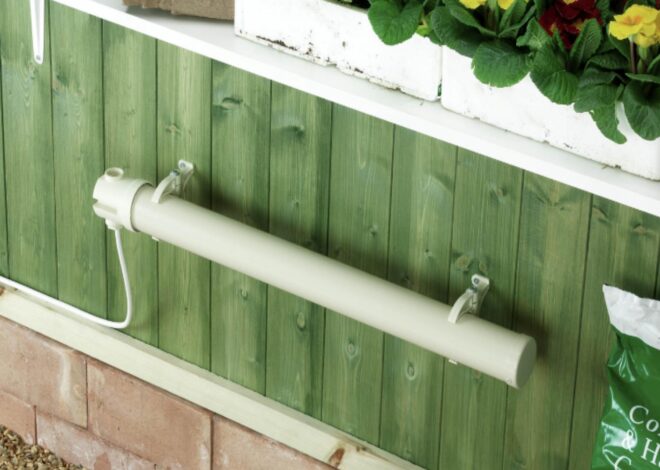
Innovative Ways to Shop Sustainably and Stay on Budget
Learn how to make eco-friendly choices without straining your finances. Discover practical tips to shop sustainably and save money while helping the planet.
Shopping sustainably doesn’t have to mean emptying your wallet. As awareness of environmental challenges grows, consumers seek ways to align their purchases with eco-friendly values. However, the misconception that sustainable shopping is expensive often deters people.
The good news is that you can shop consciously without overspending. From making more intelligent choices to embracing budget-friendly habits, sustainable shopping is more accessible than ever. This guide will explore actionable tips that help you save money while supporting a greener future.
Let’s dive into six meaningful strategies for sustainable shopping that are kind to both the planet and your budget.
1. Buy Secondhand for Quality and Savings
Buying secondhand is one of the easiest ways to shop sustainably while staying within your budget. Giving pre-loved items a second chance reduces waste and lowers the demand for new resources.
Why It Matters
The fashion industry alone contributes to 10% of global carbon emissions. Opting for thrifted or vintage pieces helps mitigate this environmental impact. Secondhand doesn’t mean low-quality—many items in thrift stores are barely used or even brand-new.
Practical Tips
- Visit thrift stores, explore online shopping platforms and marketplaces, and check out consignment shops for clothing, furniture, and electronics.
- Look for high-quality brands at a fraction of the retail price.
- Participate in local swap events to trade items you no longer need.
Secondhand shopping keeps items out of landfills and saves money on essentials, such as wardrobe staples and household goods.
2. Choose Durable Products Over Disposable Ones
Investing in durable, high-quality products may cost more upfront but pays off in the long run. This shift reduces waste and ensures you’re not constantly replacing cheap, low-quality items.
Why It Matters
Millions of single-use products, from plastic cutlery to fast-fashion clothing, end up in landfills yearly. Choosing long-lasting alternatives reduces one’s environmental footprint and prevents frequent replacement costs.
Practical Tips
- Opt for stainless steel water bottles, cloth grocery bags, and reusable straws instead of disposable ones.
- Check product reviews and warranties to ensure durability when buying appliances or tools.
- Focus on timeless, versatile items that don’t go out of style quickly.
By choosing durable items, you’re making a sustainable investment in your lifestyle while minimising waste.
3. Support Local and Sustainable Brands
Shopping from local and sustainable brands helps reduce carbon emissions associated with transportation and promotes ethical business practices.
Why It Matters
Many large corporations prioritise profit over sustainability. On the other hand, local and eco-friendly businesses often use sustainable materials, pay fair wages, and follow ethical practices. Supporting them boosts your community and the planet.
Practical Tips
- Research local farmers’ markets for fresh produce and handmade goods.
- Look for certifications like Fair Trade, Rainforest Alliance, or B-Corp when shopping.
- Check brand transparency on their environmental and ethical commitments.
You’re voting with your dollars for a better world by choosing local and sustainable options.
4. Utilise Coupons, Discounts, and Rewards Programs
Sustainable shopping doesn’t have to break the bank. Many eco-friendly retailers offer discounts, coupons, and rewards programs to help customers save.
Why It Matters
Budget constraints are a common barrier to shopping sustainably. You can stretch your budget while making responsible choices by taking advantage of cost-saving and time-saving opportunities
Practical Tips
- Subscribe to newsletters from sustainable brands to receive exclusive discounts.
- Use cashback apps or websites to earn money back on purchases.
- Shop during sales events like Earth Day promotions, where many eco-friendly brands offer deals.
You can find great deals on sustainable products and maximise your savings with some research.
5. Borrow, Rent, or Share Instead of Buying
Sometimes, you don’t need to own something permanently. Borrowing, renting, or sharing items with your community reduces consumption and saves money.
Why It Matters
The average drill is used for just 13 minutes during its lifetime, yet millions are sold yearly. Items like tools, equipment, or formal attire often sit unused for most of their lifespan. Renting or borrowing ensures fewer products are manufactured, reducing energy and resource use.
Practical Tips
- Check out local libraries or community centres that lend tools, equipment, or clothing.
- Use platforms like Rent the Runway or Fat Llama to borrow items for short-term use.
- Organise item-sharing groups to exchange items like gardening tools or camping gear in your neighbourhood.
Borrowing or renting makes eco-friendly living easier while cutting costs on rarely used items.
6. Educate Yourself and Spread Awareness
Sustainable shopping is a continuous learning process. The more informed you are, the better decisions you can make. Sharing your knowledge can inspire others to adopt eco-friendly habits.
Why It Matters
Many people want to shop sustainably but don’t know where to start. By staying informed and educating others, you amplify the impact of your sustainable choices.
Practical Tips
- Follow blogs, podcasts, and social media accounts focusing on sustainable living.
- Participate in workshops or online courses about eco-friendly practices.
- Share your sustainable shopping successes and tips with friends family, or through social media.
When you inspire others to adopt sustainable habits, you create a ripple effect that extends far beyond your efforts.
Conclusion
Shopping sustainably and staying on budget is not only achievable but also rewarding. By embracing secondhand shopping, choosing durable products, and supporting local businesses, you can make a meaningful environmental impact without overspending.
Every small step counts. Whether reducing waste through DIY projects or using coupons for eco-friendly products, these actions add up over time.
Start today—shop smarter, spend less, and join the movement toward a more sustainable future.


